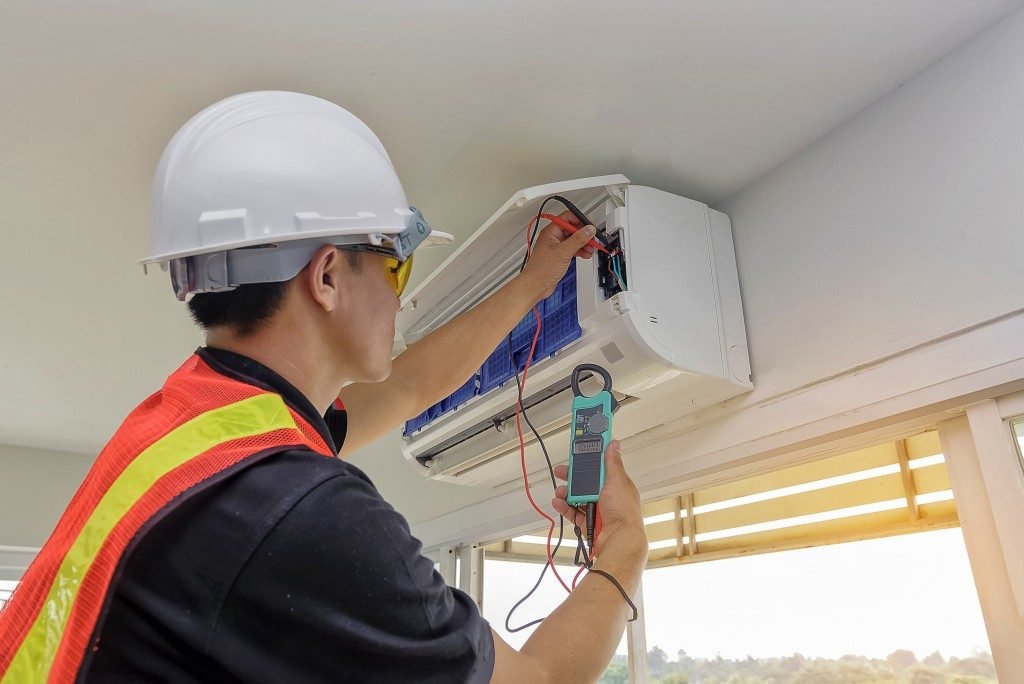With an increasing number of property owners gradually seek additional sustainable and cost-effective solutions for their HVAC needs, geothermal heating and cooling systems have risen as a strong option. Such innovative systems utilize the earth's geothermal energy to provide both heating and cooling, offering a unique alternative to conventional HVAC setups. But are they worth the investment?
In this article, we will delve into the basics of geothermal HVAC systems, analyzing how they operate and comparing their benefits and drawbacks. We will also discuss key considerations for homeowners thinking about this technology, as well as practical tips for maximizing energy efficiency and indoor comfort. If https://phillips-crawford.federatedjournals.com/comparing-central-hvac-solutions are new to HVAC concepts or seeking upgrade your current setup, this guide will provide insightful insights into the potential of geothermal energy in your home.
Comprehending Heating, Ventilation, and Air Conditioning Fundamentals
HVAC refers to heating, providing ventilation, and cooling systems, which is a system designed to provide comfortable temperatures and acceptable indoor air quality in home and business establishments. Knowing HVAC is important for property owners and building managers alike, since it consists of multiple parts working together to regulate the climate within a space. The heating component aspect typically includes heating units or heat pumps, while the cooling is provided by air conditioning systems. Ventilation is key for ensuring that fresh air flows, helping in controlling humidity levels and enhancing indoor air quality.
Every part of an HVAC system plays a specific function in keeping a pleasant atmosphere. The heating mechanisms, whether gas, electric, or geothermal, heat the space during chilly seasons. Air conditioning units cool the space in summer, typically using cooling agents to absorb heat indoors. Proper ventilation setups are essential for eliminating contaminants and securing a steady airflow, thereby contributing to a more beneficial home. Knowing how these elements work together can help homeowners troubleshoot issues and appreciate their importance.
To maximize HVAC systems, understanding of their operation and upkeep is required. Regular upkeep activities, like changing filters and arranging professional inspections, can avert common problems and extend the system's duration. Homeowners should also be conscious of energy-saving standards and the possible benefits of upgrading to smarter systems, which can lead to large savings on utility costs. Familiarity of these systems fundamentals not only enhances convenience but also fosters a forward-thinking approach to managing one's home.
HVAC Maintenance Essentials
Routine maintenance is essential for ensuring your HVAC system functioning optimally and lengthening its lifespan. A serviced system not only provides maximum heating and cooling but also lowers the risk of unforeseen breakdowns. Commence with scheduled inspections to look for possible wear and tear. Replace or clean air filters every one to three months, depending on how often you use it and filter type. Clean filters enhance airflow and indoor air quality, which can help in reducing allergies and health issues.
In addition to regular filter maintenance, ensure that the outdoor unit is clear of debris and vegetation. This allows for sufficient airflow and prevents overheating. Arranging seasonal tune-ups with a professional technician can also identify potential problems that might lead to larger repair costs down the line. During these inspections, technicians typically inspect refrigerant levels, maintain evaporator and condenser coils, and ensure that all wiring components are operating as intended.
Lastly, be sure to track your system's performance throughout the season. Keep an eye on unusual noises or changes in efficiency, and address any issues promptly. This preventative approach ensures that not only the longevity of your HVAC system but also helps maintain a comfortable indoor environment while possibly lowering your energy bills.
Examining Geothermal Alternatives
Geo-thermal HVAC systems exploit the unchanging heat found under the Earth's surface to provide efficient heating and chilling for residences and commercial facilities. By utilizing a network of below-ground pipes, these systems exchange heat with the soil, considerably lowering the energy needed for interior climate control. This renewable energy source not just supports green practices but also delivers sustained cost savings on energy bills, rendering it an appealing option for eco conscious consumers.
One of the main benefits of geo-thermal systems is their efficiency. Compared to standard warming and cooling techniques, geothermal systems can be as high as four times more effective, as they transfer heat rather than generate it. This effectiveness results to diminished utility costs and a lowered carbon footprint, which is desirable in an era of growing energy prices and growing awareness of climate change. Additionally, geo-thermal systems typically require not as much maintenance than traditional HVAC units, leading to their long-term reliability and performance.
However, the upfront investment for geo-thermal HVAC systems can be considerable, due to the costs linked with installation and the necessary ground loops. Homeowners must balance the initial expense against possible energy savings and government incentives for sustainable energy systems. Over time, the return on investment can render geo-thermal systems valuable, particularly for those hoping to live in their homes for many years. As technology progresses and costs slowly decline, geo-thermal HVAC options will probably become even more feasible for a wider audience.

